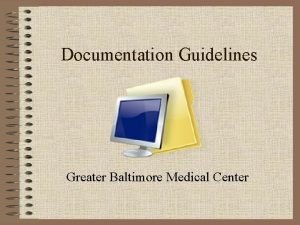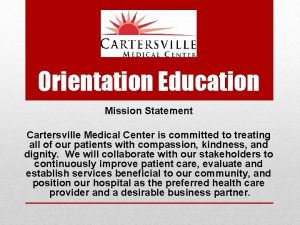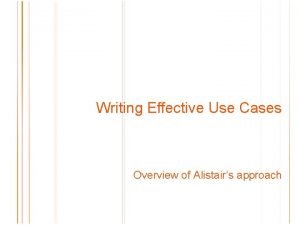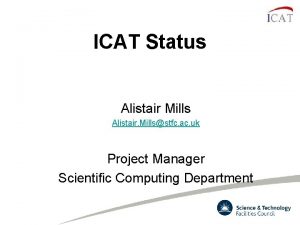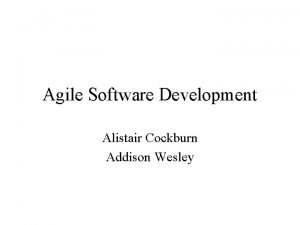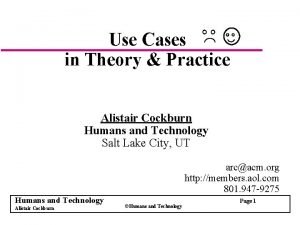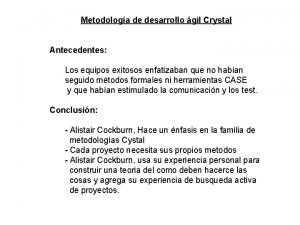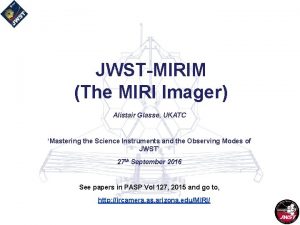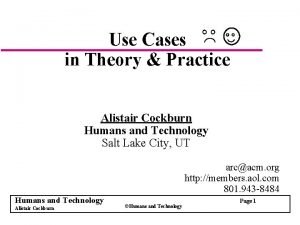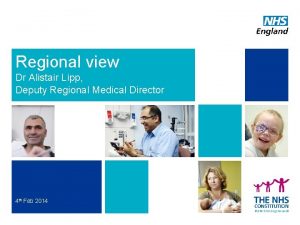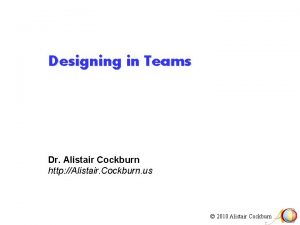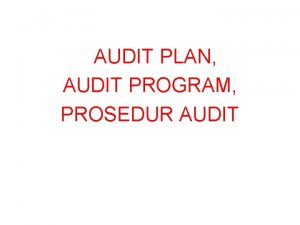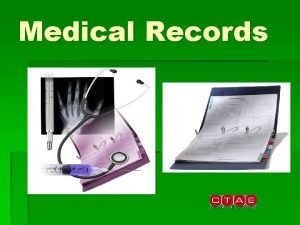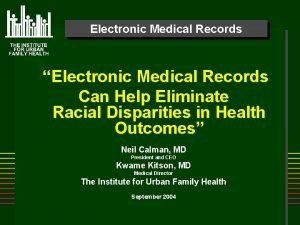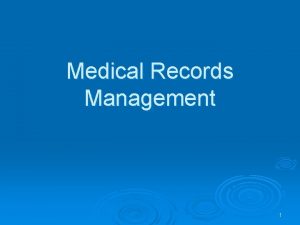Audit culture donors and medical records Dr Alistair











- Slides: 11

Audit culture, donors and medical records Dr Alistair G Tough University of Glasgow

Audit culture • Did not have the concept in 2000 • Articulated by Onora O’Neill in Reith Lectures • Nonetheless, aware of underlying problems

Some background • Working in Civil Service Department in Tanzania • PSRP, 1999 -2000 • In stakeholder group for Health Management Information System [MTUHA] ex officio

MTUHA concerns • Attending stakeholder meetings • Composition – Ministry staff earning per diems; squads of donor people; but hardly any front line health care staff • An evidently top-down approach • Imposed by statisticians based in HQ and provided by donor

MTUHA investigations My job involved travelling to remote areas Made appointments to see some RMOs Talked to them and colleagues Findings indicated resentment – extra work, no consultation, anxiety about use • Data was sometimes made up or intentionally inaccurate • •

A visit to the Ministry • Wanted to offer suggestions for change and improvement • Few MTUHA staff present • Those who were there conducting private business

A wrong conclusion • • Reckoned MTUHA had failed Decisions not based on its products Absenteeism rife So would be allowed to wither on the vine

MTUHA revived • In 2000 DANIDA did withdraw • In 2002 NORAD / University of Oslo replaced them • Seeking to extend HMIS introduced in South Africa after Apartheid • Steady stream of Tanzanians to Oslo for masters and doctoral studies

Evidence of continuing problems • Substantial amount of literature – often by Oslo graduates • Findings show that shortcomings of MTUHA persist despite large expenditure • Focus on technology not human factors • Failure to engage with front-line staff • Tendency to waste the time of front-line staff • System believed to exist for Ministry & donors

A better way forward? • Data sets should lead to changes in the official mind set – essence of evidence-based care • So MTUHA needs to be based on what is happening on the frontline of health care • So integrate medical record keeping (which frontline staff need) with HMIS? • Bid to GCRF for work on alternative approaches, in Malawi initially

Generic lessons? • Mandating record keeping systems • And alienating staff who must create their content • May not be best strategy • And may leave misleading data for future generations • So it is worth thinking about alternatives
 Greater baltimore medical center medical records
Greater baltimore medical center medical records Torrance memorial human resources
Torrance memorial human resources Cartersville medical center medical records
Cartersville medical center medical records Writing effective use cases
Writing effective use cases Alistair mills
Alistair mills Agile software development cockburn
Agile software development cockburn Alistair cockburn use cases
Alistair cockburn use cases Alistair cockburn crystal
Alistair cockburn crystal Alistair glasse
Alistair glasse Cockburn use case
Cockburn use case Alistair lipp
Alistair lipp Alistair harvey
Alistair harvey
